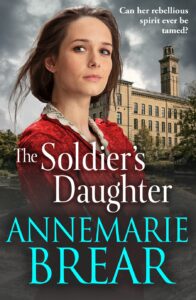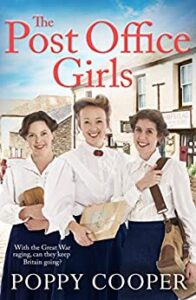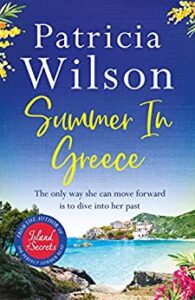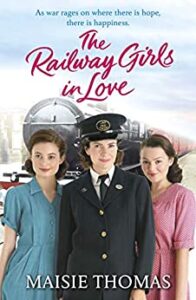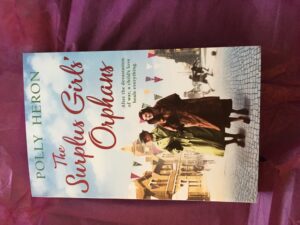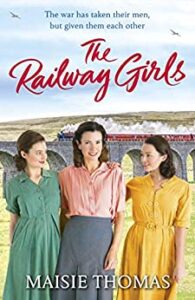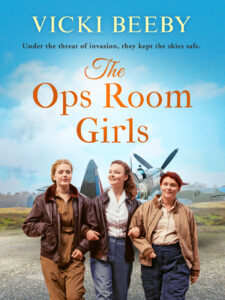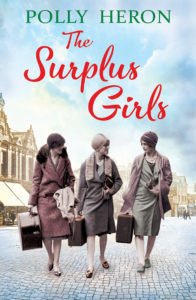 Would you have been ready to leave home to become a live-in servant in a posh country house – when you were twelve? That’s what happens to Potteries Girl, Betty Dean. She knows her life will be very different, but is she ready for the loneliness of being in two worlds and not being settled in either? In the following extract, Betty is about to leave home and all her sister, Mary-Ellen is worried about is taking over the housework.
Would you have been ready to leave home to become a live-in servant in a posh country house – when you were twelve? That’s what happens to Potteries Girl, Betty Dean. She knows her life will be very different, but is she ready for the loneliness of being in two worlds and not being settled in either? In the following extract, Betty is about to leave home and all her sister, Mary-Ellen is worried about is taking over the housework.
‘I’m glad I’m going.’ Betty jumped to her feet. ‘You’ll all have to do some things for yerselves and about time too. I’ll come back to see yer on me day off each month, like I said.’ She glared at Mary-Ellen. ‘But I’ll not be coming back to do the washing, ironing, cooking or anything else, I’ll tell yer that for nowt.’
There was silence round the table. The faces looking up at her brought home the enormity of what was happening. Betty had to take a stand right from the outset.
Her annoyance soon fizzled out. It was beginning to hit her – from this point onwards, she wouldn’t know what her brothers and sisters were up to, whether someone was ill, happy, or sad. All she would have would be letters, if they could be bothered to send them. They would live in different worlds, with different things to talk about, and she would be a train ride away. She would come to know less and less about her own family, be the odd one out, living alone. She had wanted space to be herself in their crowded home, but it came with a heavy cost. When she put it like that, it sounded lonelier than she had ever imagined.
It would be up to her to make sure she didn’t lose touch. She would insist everyone, even little Tommy, with a bit of help, write her a letter each month. That way she could begin to bear it, she hoped.
 It’s only when you are parted from the family and friends that you realise how much you have taken them for granted over the years – a hard lesson to learn at so young an age. And it’s difficult to think about others when you are hurting too.
It’s only when you are parted from the family and friends that you realise how much you have taken them for granted over the years – a hard lesson to learn at so young an age. And it’s difficult to think about others when you are hurting too.
That night, she lay in bed, curled up with Mary-Ellen and Lily, eyes wide open, unable to sleep.
‘Betty?’
The hiss of a voice came from the doorway. A young voice. Tommy.
Betty sat up, careful not to bump against Mary-Ellen ‘Are you all right, Tommy?’
He let himself into the room. ‘I conner sleep knowing as you’ll be gone soon. Conner get it out of me mind.’
‘I won’t be far away. And I’ll come back regular. I promise.’
‘Why d’yer have to go?’
‘We need the money and now we’re all growing up, there’s no room for all of us here.’
‘I’m going ter miss yer.’
Betty put her arms around him. ‘And I’ll miss you so much. You know I will.’
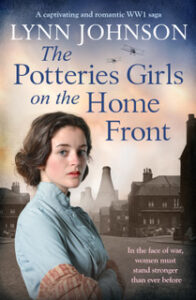 ‘Can I stay in here? Just for tonight.’
‘Can I stay in here? Just for tonight.’
‘There’s no room, Tommy,’ muttered Lily.
‘Course there is, just for tonight, said Betty, on the verge of tears.
‘Yes, but you’ll have ter get up early.’
‘Dunner care.’
As he huddled against her, Betty put her arms around her brother and sisters. Would this be the way of it all from now on? Always saying goodbye. She had to be strong. To think for herself. To be herself.
Staying in touch – is at the heart of Betty’s story.
Website: www.lynnjohnsonauthor.com



